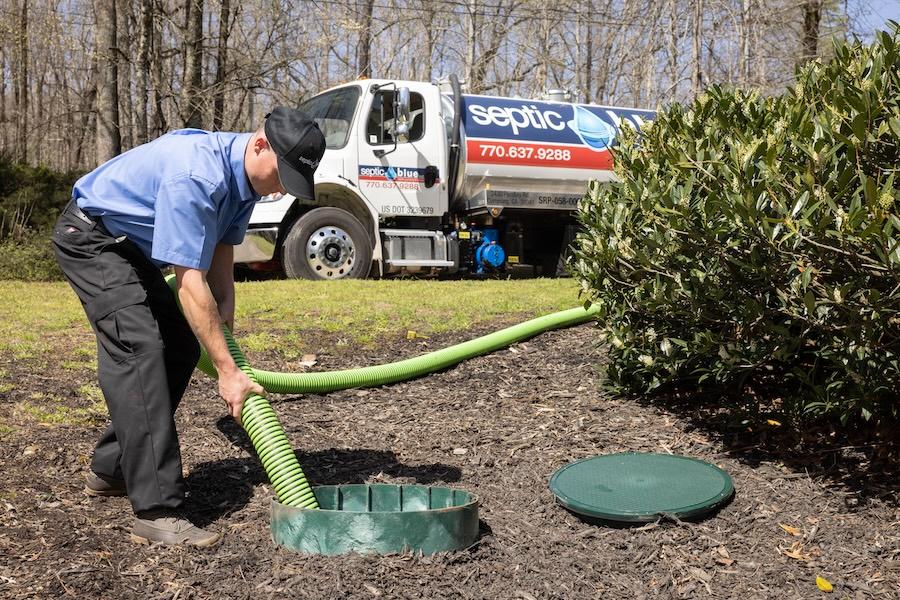WE NOT ONLY PUMP YOUR TANK - WE CLEAN IT! Free Septic System Inspection ($99 Value) Free enzyme treatment , Financing Available
Call Septic Blue Now 813-355-9188
It's Easier Schedule Online
WE NOT ONLY PUMP YOUR TANK - WE CLEAN IT! Free Septic System Inspection ($99 Value) Free enzyme treatment , Financing Available
Call Septic Blue Now 813-355-9188
It's Easier Schedule Online

When a septic system in a commercial property malfunctions, the ripple effects can be substantial. Business operations can grind to a halt, customers and employees are inconvenienced, and the issue can quickly become an expensive problem if not handled right away. Septic Blue of Tampa provides emergency septic system service for commercial properties so you can get your system back on track. Whether you need septic pumping in Odessa, FL, septic cleaning, or a full diagnostic septic service, knowing what to do when emergencies arise is required to protect your business and your bottom line.
Understanding how septic systems work can help you appreciate the importance of timely maintenance and swift action during emergencies. Septic systems treat wastewater from buildings not connected to municipal sewer systems. For commercial properties, these systems are usually larger and more complex than residential ones, so they have to handle higher volumes of waste and accommodate a wide range of uses. Here’s a simple breakdown of how they function:
Regular septic pumping and septic cleaning are critical for preventing solids from overloading the system. A well-maintained system can operate efficiently for years, but neglect usually leads to expensive failures.
Septic emergencies can disrupt operations and create health hazards. Knowing the signs can help you take care of issues before they worsen.
Handling septic emergencies in commercial properties involves complexities beyond what you’d encounter in a residential setting. Businesses rely on uninterrupted operations, so timely repairs are a priority. Here are some of the challenges that come with emergency septic service:
The holidays are all about good food, family visits, and…
Read More+When it rains a lot, your yard might flood, the…
Read More+When you live in a home with a septic system,…
Read More+Choosing a reputable septic company will ensure you have access to trained professionals who are equipped to handle the unique demands of commercial properties.
Knowing what to do during a septic system emergency can reduce damage and expedite repairs. Here are some actionable steps to follow:
When emergencies strike, having a reliable septic company on your side matters. Septic Blue of Tampa provides fast, professional service to meet the unique needs of commercial properties. Our team is experienced in handling everything from routine septic pumping to complex emergency repairs so you can get your system back under control quickly. Contact us to schedule your next septic system service.